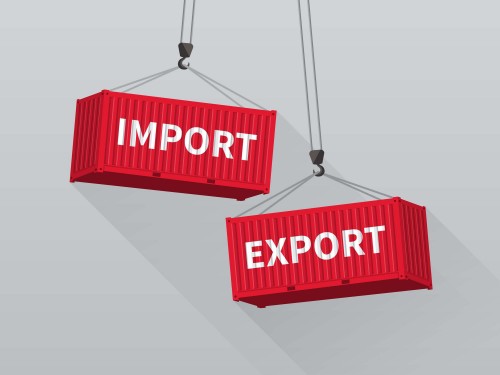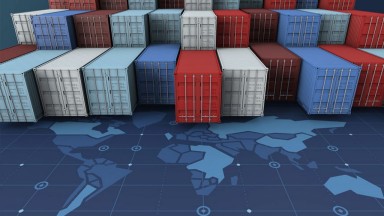Port operations in two major ports in Lagos, Tin-can Island and Ports & Terminal Multipurpose Limited, have been severely impacted by strike actions commenced by the Customs Agents and Freight Forwarders operating at the two ports. The protagonists of the strike action have evinced an intention to extend the strike action to other major ports, which may grind operations in Nigerian ports to a complete halt. The industrial action is in protest against implementation of the e-valuation and e-invoicing for processing the documentation for imports and exports[1] in and out of Nigeria. The Central Bank of Nigeria (“CBN”) had earlier introduced e-invoicing for all imports and exports, to replace hard copy invoices submitted for processing international trade documentation. The strike action follows a resolution passed by the House of Representatives[2] last month for the CBN to halt implementation of the policy. But why has this policy generated so much interest and indeed, resistance, by various stakeholders?
Earlier this year[3], the CBN issued a Guideline on the implementation of “e-evaluator, e-invoicing” for import and export in Nigeria, effective February 1, 2022. Considering the significant effect of the policy on international trade, the timeline was regarded as too short for a seamless implementation of the policy. The determination of prices of goods by the CBN under the newly introduced e-valuation process, has also been a source of concern for stakeholders in the import and export business. However, the CBN posits that this is not the case. It had first communicated the plan to introduce the e-invoice and e-valuator more than a year ago, specifically via a Circular issued on August 5, 2020[4]. Thus, the Guideline issued in January 2022 only provides the regulatory framework for the digital invoicing and valuation regime and sets a commencement date for its implementation. The core objective of the policy, as stated in the Guideline, is to achieve accurate value from all import and export items in and out of Nigeria. As such, the operation will entail a global price verification mechanism guided by a benchmark price, which will be the actual spot market price obtainable in the market where the goods are traded.

Furthermore, the Guideline provides that imports and exports with unit prices higher than 2.5% of the verified global benchmark price, will be queried and the relevant documentation for such transaction will not be approved on the Nigeria Single Window Portal – Trade Monitoring System (“TRMS”); which is the trade management portal required for all imports and exports in Nigeria. Further, traders will be prohibited from making payments through the commercial banks in Nigeria for transactions which invoices have not been duly authenticated by the authorized dealer banks.
It is therefore unsurprising, that a policy by which CBN can seemingly determine the appropriate pricing for an international trade transaction will generate so much interest. The CBN maintains that such policy will help Nigerian importers who may have been constrained to pay beyond market price for various goods imported into Nigeria. Conversely, the CBN asserts that Nigerian exporters whose goods may have been undervalued by foreign trade partners will now receive adequate compensation for their goods. The CBN also notes that the implementation of the Policy will help to curb money laundering through fictitious trade transactions which value are typically inconsistent with what is obtainable for comparable transactions.
However, these seemingly laudable objectives have not been enough to sell the policy to the various stakeholders. One of the major complaints against it, is the lack of co-ordination between the CBN and the Nigeria Customs Service (the “Customs”)[5]. The immediate complaint of the protagonists of the strike action, is that while they have no objections to the digital invoicing regime in principle, the implementation of the policy has resulted in an increase in customs duties on imported cars, without any prior notice to them. This lack of co-ordination with the Customs was also raised at a Stakeholders event organized by the CBN earlier this month[6]. In response to an enquiry at the event regarding whether the Customs will be bound to assess customs duties based on the price benchmark set by the CBN, the CBN stated that the Customs still had the discretion on how to assess and apply customs duties, considering that the Customs deals with verification of the physical goods at the ports, while the CBN only reviews and approves the requisite documentation submitted on the TRMS.

Further, stakeholders have raised issues with how CBN can unilaterally determine what constitutes an appropriate price for goods, when there are various factors which result in determining prices such as place of production, quality of raw materials, labour costs and forces of demand and supply. Also, for commodities which prices change on a periodic basis, how reliable will be the data utilized by the CBN, and will this information be updated regularly to accommodate such fluctuating changes? However, the CBN has assured the stakeholders that all the issues and concerns raised will be taken into consideration, as implementation of the policy commences.
Considering that the digital evaluation and invoicing regime only fully commenced about a month ago, the next few months will be very crucial. Indeed, the CBN has been severely criticized for prioritizing the implementation of monetary policies in an attempt to fix the challenges with the foreign exchange deficit in Nigeria. In directing the CBN to halt the implementation of the policy, the House of Representatives opined that this is a major policy change and a haphazard implementation could result in distortions in the Nigerian economy. It will appear that the CBN has a different view on the new regime, as it has continued with its implementation in spite of the various criticisms that have trailed the process.
In our view, digitalization of the invoicing system is not the root cause of the crises. The bone of contention appears to be the new policy of e-valuation of goods, against a global benchmark price applied by the CBN. It will certainly lead to a dispute where e-invoices that are to be transmitted to the TRMS fail authentication and are queried, simply because the CBN evaluates their unit prices as greater than 2.5 percent of the global benchmark prices being utilized by the CBN. Another cause of the crises is the uncoordinated actions of CBN and the Customs, whereby duties can be raised by the Customs based on what it determines as the appropriate price of goods, notwithstanding the benchmark price approved by the CBN.
The merits of the e-invoicing system should not be allowed to be eroded by the onerous implementation of the accompanying new policy of e-valuation system. Digitalization has been successfully deployed to the Nigeria’s international trade arena, resulting in the replacement of the hard copy Form M and Form NXP (that were used for processing commercial imports and exports from Nigeria) with electronic versions on the CBN-monitored TRMS.
We also recall that the TRMS was developed few years ago and deployed to facilitate automation of all foreign exchange forms in Nigeria, which include Form ‘M’ (for Imports); Form ‘NXP’ (for Commercial Exports); Form ‘NCX’ (for Non-Commercial Exports); and Form ‘A’ (for Invisible Trades). In what could be described as a coordinated regulatory action in furtherance of the objectives of the TRMS, the CBN and NAFDAC had in September 2019, jointly implemented the integration of all e-permits/licenses/notices issued by NAFDAC in respect of NAFDAC-regulated products, with the CBN’s e-Form ‘M’ on the Nigeria Single Window Trade Portal.
We note that, except by way of legislative amendment, it is not certain if a resolution of the National Assembly could effectively halt the performance of a duty carried out in exercise of statutory powers. The CBN is empowered under the Foreign Exchange (Monitoring & Miscellaneous Provisions) Act of 1995, to monitor and supervise the foreign exchange market. Pursuant to this powers, it can validly issue guidelines regulating import and export trade transactions in collaboration with relevant governmental entities. Also, the Revised Foreign Exchange Manual 2018, issued by the CBN, prescribes the systems for processing the Forms used in imports and exports in Nigeria.

However, in spite of its powers to regulate import and export trade transactions, stakeholders have deemed this policy to be a unilateral determination of prices of goods, notwithstanding that the CBN maintains that same will be based on verified global benchmark prices. Indeed, there are still fears that local factors peculiar to different countries and markets, which ultimately determine the prices of goods, may not be fully taken into account.
Overall, the subsistence of the digital evaluation and invoicing regime may turn on how the CBN is able to navigate the myriad of challenges trailing implementation of the policy. We believe a lasting solution to the crises consists in a better coordination among the relevant agencies involved in international trade transactions in Nigeria, including CBN, the Customs, Authorized Dealer Banks, Shipping Lines & Airlines, and the Nigerian Port Authority, among others. A well-coordinated and broad-based consultation should also be organized with all sector stakeholders, such as the Customs Agents/Pre-shipment Inspection Agents, Freight Forwarders, CBN-appointed Service Providers, and others. In particular, where the Customs considers an increase in duties on imported goods, it should be clearly communicated to the stakeholders and not hidden under implementation of the e-valuation and e-invoicing policy.
The Grey Matter Concept is an initiative of the law firm, Banwo & Ighodalo.
DISCLAIMER: This article is only intended to provide general information on the subject matter and does not by itself create a client/attorney relationship between readers and our Law Firm or serve as legal advice. We are available to provide specialist legal advice on the readers’ specific circumstances when they arise.
Click here to read our previous article on Automation of “Form NXP” for Commercial Exports from Nigeria.
[1] Form “M” for imports and Form “NXP” for exports.
[2] The Lower House of the National Assembly, Nigeria’s Federal Bicameral Legislature.
[3] Specifically, on January 21, 2022. The Guideline was issued by the CBN’s Trade and Exchange Department and referenced: TED/FEM/FPC/PUB/01/001.
[4] CBN Circular with Reference No: TED/FEM/FPC/GEN/01/005.
[5] The CBN Guideline specifically states that the contents of the e-invoices which are duly authenticated by the authorized dealer banks are merely advisory for the Nigeria Customs Service.
[6] The Stakeholders Event was held in Abuja, Nigeria, on February 3, 2022 and had various Nigerian traders, international trade managers of commercial banks and officials of the CBN in attendance.














